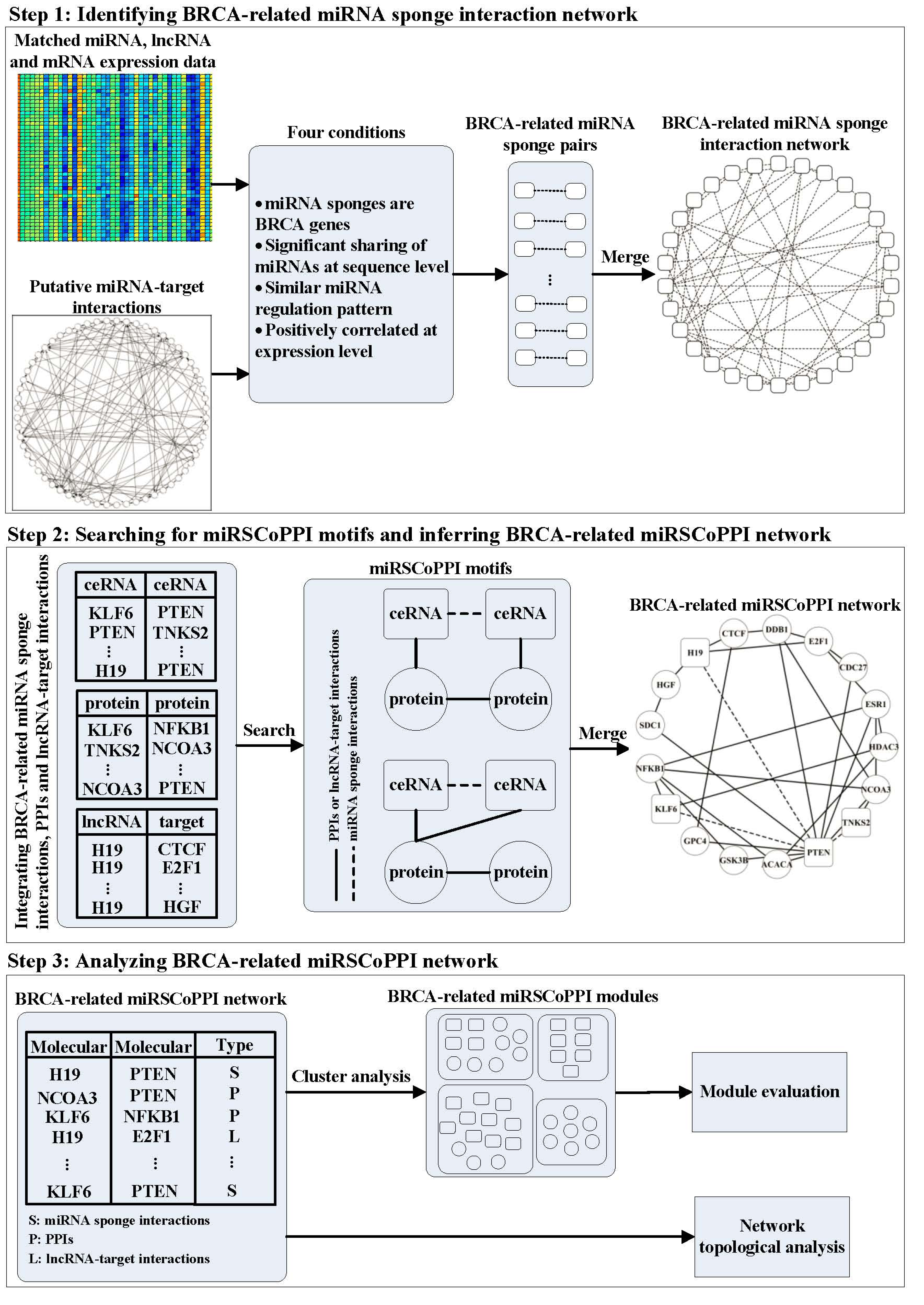 The pipeline of miRSCoPPI
The pipeline of miRSCoPPI
 The pipeline of miRSCoPPI
The pipeline of miRSCoPPI
Background Recent studies have shown that the crosstalk between microRNA (miRNA) sponges plays an important role in human cancers. However, the co-regulation roles of miRNA sponges in protein-protein interactions (PPIs) are still unknown. Results In this study, we propose a multi-step method called miRSCoPPI to infer miRNA sponge co-regulation of PPIs. We focus on investigating breast cancer (BRCA) related miRNA sponge co-regulation, by integrating heterogeneous data, including miRNA, long non-coding RNA (lncRNA) and messenger RNA (mRNA) expression data, experimentally validated miRNA-target interactions, PPIs and lncRNA-target interactions, and the list of breast cancer genes. We find that the inferred BRCA-related miRSCoPPI network is highly connected and scale free. The top 10% hub genes in the BRCA-related miRSCoPPI network have potential biological implications in breast cancer. By utilizing a graph clustering method, we discover 17 BRCA-related miRSCoPPI modules. Through pathway enrichment analysis of the modules, we find that several modules are significantly enriched in pathways associated with breast cancer. Moreover, 10 modules have good performance in classifying breast tumor and normal samples, and can act as module signatures for prognostication. By using putative computationally predicted miRNA-target interactions, we have consistent results with those obtained using experimentally validated miRNA-target interactions, indicating that miRSCoPPI is robust in inferring miRNA sponge co-regulation of PPIs in human breast cancer. Conclusions Taken together, the results demonstrate that miRSCoPPI is a promising tool for inferring BRCA-related miRNA sponge co-regulation of PPIs and it can help with the understanding of the co-regulation roles of miRNA sponges on the PPIs.